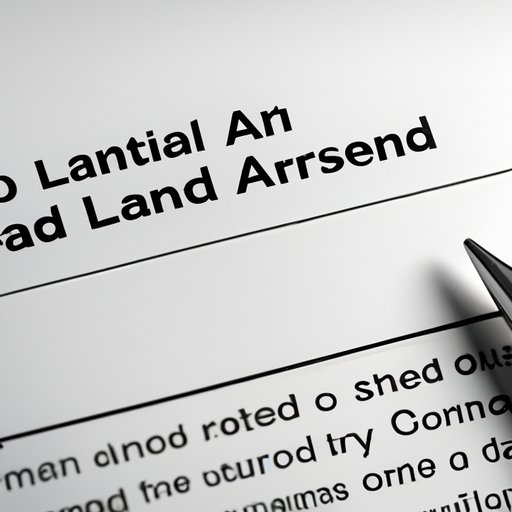
Introduction
Financing land is a critical component of achieving property ownership, and determining whether you can finance land is an essential beginning point. Most people assume that their financing opportunities will mirror their financing options when purchasing a home, but this is not the case. Land financing comes with its policies, procedures and requirements. This article will explore land financings, their types, pros and cons, specific considerations for financing land for building purposes, and steps to obtaining land financing.
Types of Land Financing
The three most common forms of financing land include bank or credit union loans, government-backed loans, and seller financing.
Bank or Credit Union Loans: Bank or Credit Union Loans are among the most common types of financing, and the loan approval process is often similar to the approval process of a mortgage loan for a residential property. Bank and Credit Union Loans typically carry an interest rate and a term of repayment to the lender.
Government-Backed Loans: The United States Department of Agriculture (USDA) and the Department of Veterans Affairs (VA) offer government-backed loans to be used for purchasing raw land. These loans come with favorable interest rates, low down payments, and longer repayment periods.
Seller Financing: In this type of financing, the landowner acts as the lender, providing the loan to the buyer. There is no approval process, no credit check, no fees, and no closing cost. The interest rate is often higher than what a traditional bank would offer, and the term is usually shorter.
Pros and Cons of Financing Land
Financing land comes with its advantages and disadvantages.
Advantages of Financing Land:
- Flexibility: Financing land offers more flexibility than purchasing property outright. You can invest in the land, even if you don’t have the cash, and begin building your dream property from scratch.
- Access to More Properties: With financing, you can access a more significant amount of land that would have been out of reach if you were to purchase the land outright.
- Tax Breaks: Financing land is often considered an investment and provides tax-breaks.
Disadvantages of Financing Land:
- Higher Interest Rates: Interest rates on land loans are typically higher than those for home loans.
- Higher Down Payment: Traditional banks often require higher down payments for land loans.
- Shorter Repayment Terms: Land loans have shorter repayment terms than home loans, and the borrower may face heavy fines for early payments and often face a lump sum payment at the end of the term.
Assessment of Reader’s Financial Situation to determine if financing land is suitable: Financing land is not always the best option for every buyer. It is imperative to assess your financial situation and determine if financing is ideal for purchasing land or if cash outright better suits your needs.
Financing Land for Building
Specific Considerations for Financing Land for Building Purposes:
- Upfront Cost Analysis. Before obtaining a loan, you should determine the total cost of the project, determine if there are any hidden fees and determine if financing is needed.
- Choosing the Right Lender: Choose the right lender offering loans that fit your financial needs and goals. Keep in mind that different lenders have different loan repayment programs, so research before choosing a lender.
- Documents Required during the Financing Process: Before the loan can be approved, the lender requires several legal documents to verify the borrower’s identity, income, debt, assets, credit score rating, and other financial details. Ensure the necessary documents are accurate and current.
Financing Land vs. Property
There are significant differences between financing land and financing property. While mortgage loans and land loans may seem similar, they carry different terms and conditions. Property loans have more regulations than land loans and provide the borrower with funds to purchase a ready-made home or commercial space, while land loans require funding to purchase raw land.
Steps to Obtaining Land Financing
A Step-by-Step Guide for Obtaining Land Financing:
- Preparing Your Credit Score: Ensure your credit score is healthy to qualify for a loan; financing is not often available to those with poor credit scores.
- Researching Lenders: Research and compare the requirements, terms, interest rates, and loan repayment program of different lenders before choosing a lender.
- Applying for Loans: Collect necessary documents and submit an application to the lender of choice.
- Closing the Deal: Once approved, you will close the deal and receive the funding you need to purchase your land.
Frequently Asked Questions about Financing Land
Answers to Common Questions Related to Land Financing:
- The Minimum Credit Score Required for Land Financing: The minimum credit score required varies by lender, though it is generally 680 or higher.
- Interest Rates for Land Loans: Interest rates vary depending on the type of loan and the lender, though rates often range from 5% to 15%, depending on the borrower’s credit score, loan terms, and down payment amount.
- Typical Duration of Land Loans: Typical loan duration often lasts between 5 to 20 years, and borrowers often make a significant lump-sum payment at the end of the repayment term.
Conclusion
Financing land provides a vital opportunity to property ownership and allows buyers to access a more substantial scope of land than what they could purchase outright. Though financing land has its advantages and disadvantages, understanding the types of land financing, necessary documents, and how to obtain financing can make the process less daunting. Prioritizing your credit score, researching lenders, and choosing the right financing option will ensure a successful land purchase. With this article, we hope that you have gained valuable insights and knowledge on financing land and have an easier time achieving your property ownership dreams.




